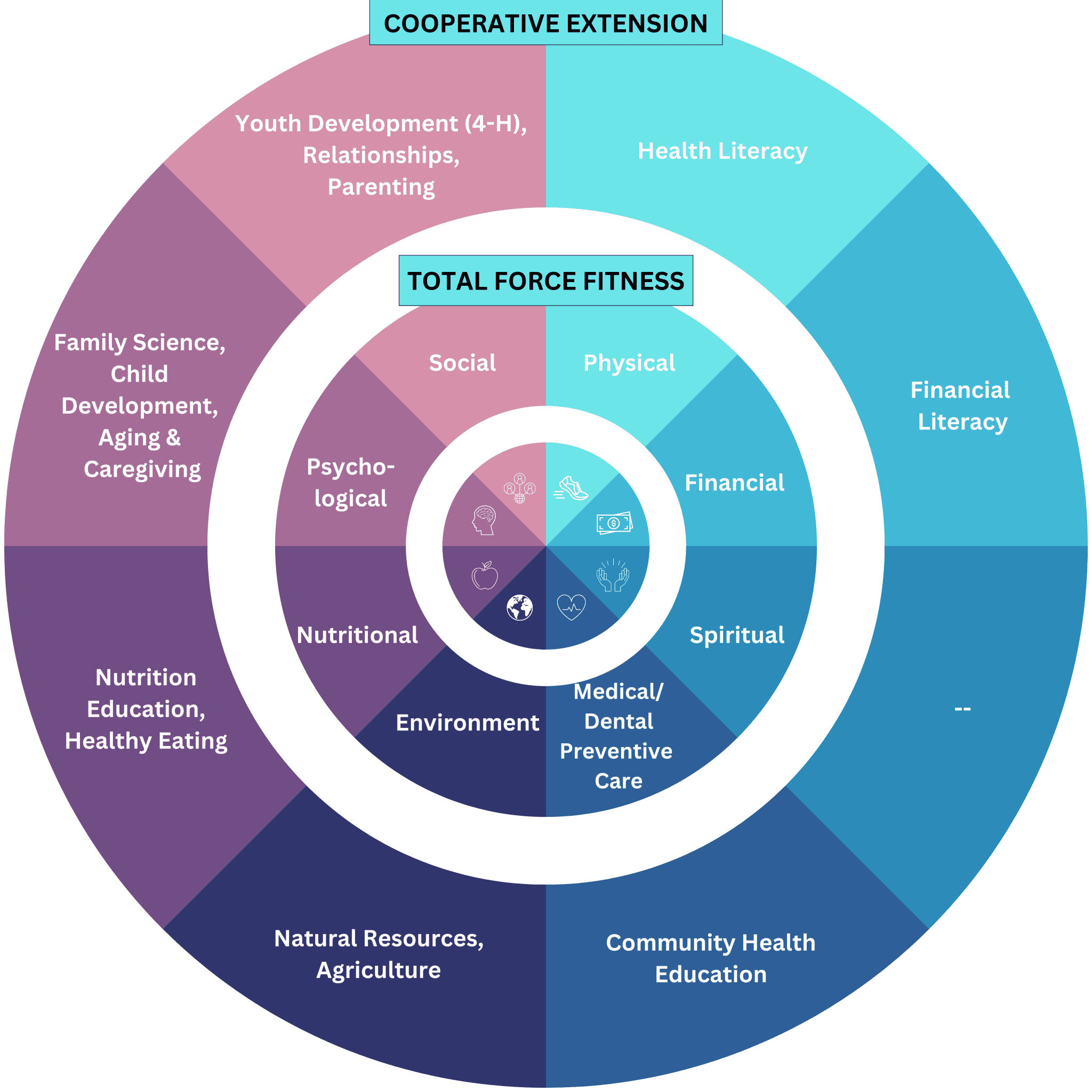By Coral Owen, M.S.
The well-being of families in the military is essential to the Department of Defense (DoD) and its goals for service readiness (National Academies of Sciences, Engineering, and Medicine, 2019). Historically, DoD programs and resources were designed for the service member, but research shows that family-related factors play an important role in service members’ readiness. An approach to support families in the military and strengthen both formal and informal networks located off the installation is through Cooperative Extension. This approach was put into motion in 1986 with the historic MOU between the DoD and USDA.
The Total Force Fitness (TFF) initiative aims to enhance service member well-being and readiness through a holistic approach to health. The domains of social, physical, financial, spiritual, medical/dental, environmental, nutritional, and psychological well-being usher service members into a space of readiness regardless of their location or situation. This framework also stands as a reference point for approaching military family well-being. The priority areas of Cooperative Extension closely reflect the TFF domains (see figure below). By using TFF as a model, military family readiness and well-being can be elevated through the multi-faceted programming available through Cooperative Extension.

One of the hallmarks of Cooperative Extension is accessibility with locations in nearly every county of the United States. Subsequently, all families may be supported by Extension services, regardless of their proximity to a military installation. This is crucial for the nearly 25% of military families who are geographically dispersed, including National Guard and Reservists.
In recent times, Extension actively uses the internet and social media to make information and resources readily available to communities, including rural populations. Regional Extension offices typically host a broad range of resources and tools on their website. Extension even hosts a question-and-answer database – Ask Extension – where you can request insight from Cooperative Extension specialists (previously known as “Ask an Expert”). Additionally, through social media channels such as Facebook and YouTube, Extension agents can provide dynamic and timely information to communities on an ongoing basis.
Through coordinated partnerships and collaborative efforts between military-connected leadership and Extension personnel, the community’s capacity to address and support the needs of military families multiplies exponentially. The deeper dive into identifying and leveraging these opportunities will be covered in greater depth in a dynamic course coming this spring. The Cooperative Extension System: A Force Multiplier for Military Family Readiness will guide practitioners through the history of Cooperative Extension, its programming capacity and wide reach, and partnership formation.













